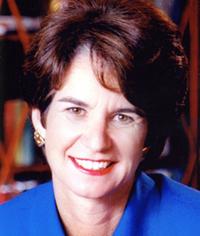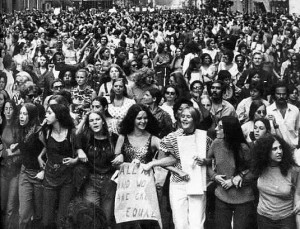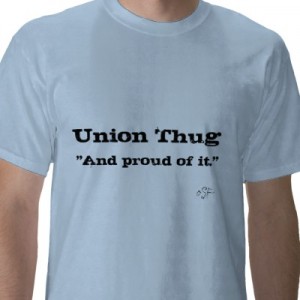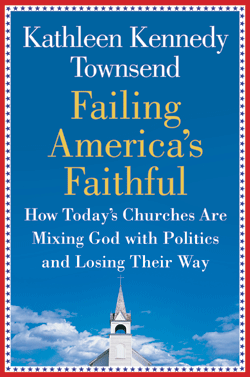 I recently visited Madison where I spoke to Wisconsin Women in Government, a group founded 24 years ago to support women who choose a career in public service. I welcomed the chance to talk about the ways women discover their power, a subject near to my heart and experience. Even though I’d grown up in a very political family, I’d never imagined as a young girl that I’d become a lawyer or run for political office. That’s what guys did. But eventually the women’s movement empowered me to develop talents I didn’t know I had and inspired me to encourage other women to do the same.
I recently visited Madison where I spoke to Wisconsin Women in Government, a group founded 24 years ago to support women who choose a career in public service. I welcomed the chance to talk about the ways women discover their power, a subject near to my heart and experience. Even though I’d grown up in a very political family, I’d never imagined as a young girl that I’d become a lawyer or run for political office. That’s what guys did. But eventually the women’s movement empowered me to develop talents I didn’t know I had and inspired me to encourage other women to do the same.
When I was in college, I saw women rally, conduct sit-ins and teach-ins, and march in the streets. In large groups and small meetings, women told their stories, demanded their rights, and passionately argued that they were equal to men. Women friends became class speakers, were hired to teach in law school, and won lawsuits. Heartened by their words and actions, I went to law school myself and founded a group called Women in Politics.
 I couldn’t have accomplished these things without the support of other women who were also becoming empowered. Led by trailblazers like Betty Friedan and Gloria Steinem, we gradually came to see ourselves differently and stopped believing what the world kept telling us–that we didn’t have it in us to make it a man’s world. We changed ourselves and we changed society. Friendship and solidarity made these transformations possible.
I couldn’t have accomplished these things without the support of other women who were also becoming empowered. Led by trailblazers like Betty Friedan and Gloria Steinem, we gradually came to see ourselves differently and stopped believing what the world kept telling us–that we didn’t have it in us to make it a man’s world. We changed ourselves and we changed society. Friendship and solidarity made these transformations possible.
It wasn’t easy. I didn’t have a single woman professor in college. After law school, I applied for a job at Legal Services, and since I had two children, asked if I could work part time. The director said no. He wanted Legal Services to stick to the same standards as large law firms. They didn’t have part-time lawyers, and neither would he. A few years later, he was elected to Congress and joined a family-friendly caucus. He had changed, like many others.
Again, during my 1986 congressional campaign, I was constantly challenged with “How can you run when you have small children?” I answered that my father had run when he had 10 children and another on the way, but this apparently wasn’t convincing. Six years later, when I ran for lieutenant governor and my youngest was turning three, not once was the question raised.
 When I arrived in Madison a few days ago, I drove to the state capitol in the late afternoon and was told that they had lit the classic white marble dome green and white after the Packers won the Super Bowl. The nearby convention center, inspired by a Frank Lloyd Wright design, wowed me with its large spaces, lovely curves, plenty of light, and a stunning view of the sparkling blue lake. It was so peaceful. There were no signs of the protests that had captured the nation’s imagination the previous winter.
When I arrived in Madison a few days ago, I drove to the state capitol in the late afternoon and was told that they had lit the classic white marble dome green and white after the Packers won the Super Bowl. The nearby convention center, inspired by a Frank Lloyd Wright design, wowed me with its large spaces, lovely curves, plenty of light, and a stunning view of the sparkling blue lake. It was so peaceful. There were no signs of the protests that had captured the nation’s imagination the previous winter.
I hadn’t forgotten the protests when I was planning my speech on women in government. Women had made some gains, but now, I felt, it was public employees who needed defending. Here I was in a state where the head of the government had railed against government, refused to meet with government employees, and demeaned teachers, social workers, and prison guards. He tried to break the union and take away collective bargaining rights. Union leaders were called “slobs and thugs.” Many teachers retired early, not wanting to deal with such a hostile environment and afraid of losing their pension. Other government employees also decided to get out. They felt their pay, health care, and pensions were at risk.
So instead of simply praising women in my speech to Wisconsin Women in Government, I felt the need to defend the rights of all government employees and their unions. Women still have unique challenges, but now it’s public servants who are in danger of being stereotyped and disenfranchised. Instead of the little woman, we have the nameless, faceless bureaucrat. How easy it is to cut the salary of a stereotype, someone we don’t know, a nothing.
Unions bring this nameless person out of the shadows. Invisible to the powerful, he or she turns out to be our neighbor. Just as the women’s movement supported individual women and girls (like me), unions give public servants their identity. Unions support, boost, and defend teachers, social workers, police, prison guards, and firefighters. With their rallies and speeches and newsletters, unions make sure that leaders can’t get away with isolating one employee from another. As de Tocqueville said, “A despot easily forgives his subjects for not loving him, provided that they do not love each other.”
What’s really dangerous to a despotic governor is for the people to trust one another. So of course the governor tries to destroy the institution that nurtures solidarity. But, like de Tocqueville, I believe that associations formed by individuals to achieve a common purpose are fundamental to American democracy.
 The most vivid image I took away from Madison wasn’t the capitol dome or the stunning convention center on the lake, but a pink pin that a union rep gave me. It said, UNION THUG AND PROUD OF IT. She knew she had a tough fight, but she was energized and excited. She was part of a great American tradition. Democracy works, for women and for men, when we support one another for justice, jobs, and our common future.
The most vivid image I took away from Madison wasn’t the capitol dome or the stunning convention center on the lake, but a pink pin that a union rep gave me. It said, UNION THUG AND PROUD OF IT. She knew she had a tough fight, but she was energized and excited. She was part of a great American tradition. Democracy works, for women and for men, when we support one another for justice, jobs, and our common future.
Cross-posted with permission of the author from Atlantic.com










Leave a Reply